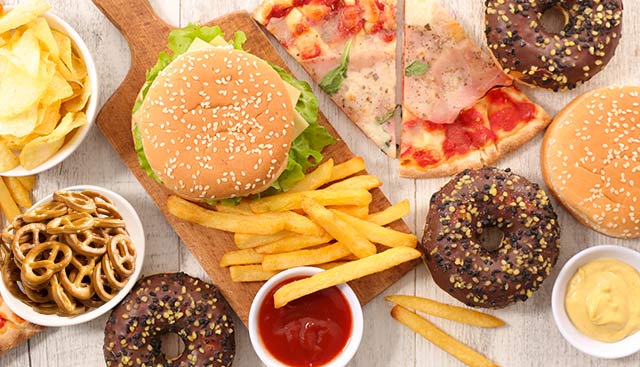Nearly 50 experts from different countries have sounded the alarm bell for global consumption of ultra processed food (UPF) which they claim is causing great risk to human health. According to them, these serious ailments include type-2 diabetes, cardiovascular disease, kidney disease, depression and premature death. Basing their findings on over 100 long-term studies, these scientists have contended in their writing in The Lancet that there could not be any substitute to fresh and minimally processed foods and meals. Meanwhile, there is growing concern about the increasing consumption of UPF which seems to be reshaping diets worldwide. These dietary predilections are being shaped by powerful global corporations who are minting money by prioritising ultra-processed products, backed by extensive marketing and political lobbying to stop effective public health policies to support healthy eating.
The review acknowledges a lack of clinical trials showing exactly how UPFs damage health — but says that should not delay action. UPF is linked to harm in every major organ system of the human body and poses a seismic threat to global health, according to the world’s largest review. Action is needed now to reduce UPF in diets worldwide because of their threat to health, these experts say. Traditional food habits that rely on fresh, whole foods are being jettisoned in favour of cheap, junk foods which are increasing the risk of a range of chronic diseases, including obesity and depression.
The researchers writing in one of the world’s most prestigious and authentic science journals say that governments need “to step up” and introduce warnings and higher taxes on UPF products, to help fund access to more nutritious foods.
Also Read: Lightning Ascent
UPFs are said to contain more than five ingredients that are not usually found at home in the kitchen cupboard, such as emulsifiers, preservatives, additives, dyes and sweeteners. Examples of such foods include sausages, crisps, pastries, biscuits, instant soups, fizzy drinks, ice creams and supermarket bread. Surveys indicate these industrially-manufactured foods are on the rise in diets around the world, worsening the quality of what we eat with too much sugar and unhealthy fats and a lack of fibre and protein.
The UK’s Scientific Advisory Committee on Nutrition has chipped in to curb the menace and said the association between higher consumption of UPFs and adverse health outcomes was “concerning.” However, there was a rider that it was “unclear” whether these foods are unhealthy due to processing or because many of them are high in calories, saturated fat, salt and free sugars. The current UK government advice on diet is to eat more fruit, vegetables and fibre, and cut back on sugar, fat and salt.
According to one estimate, in the UK and the US more than half the average diet now consists of UPFs. For some, especially people who are younger, poorer or from disadvantaged areas, a diet comprising as much as 80 per cent of UPFs is typical.
The sharp rise in UPFs intake worldwide is being spurred by profit-driven corporations using a range of aggressive tactics to drive consumption, skewer scientific debate and prevent regulation, the review of evidence suggests.
The experts’ findings underline the need for taking urgent action before the situation spins out of control. Current evidence strongly suggests that humans are not biologically adapted to consume them – a great food for thought indeed.
